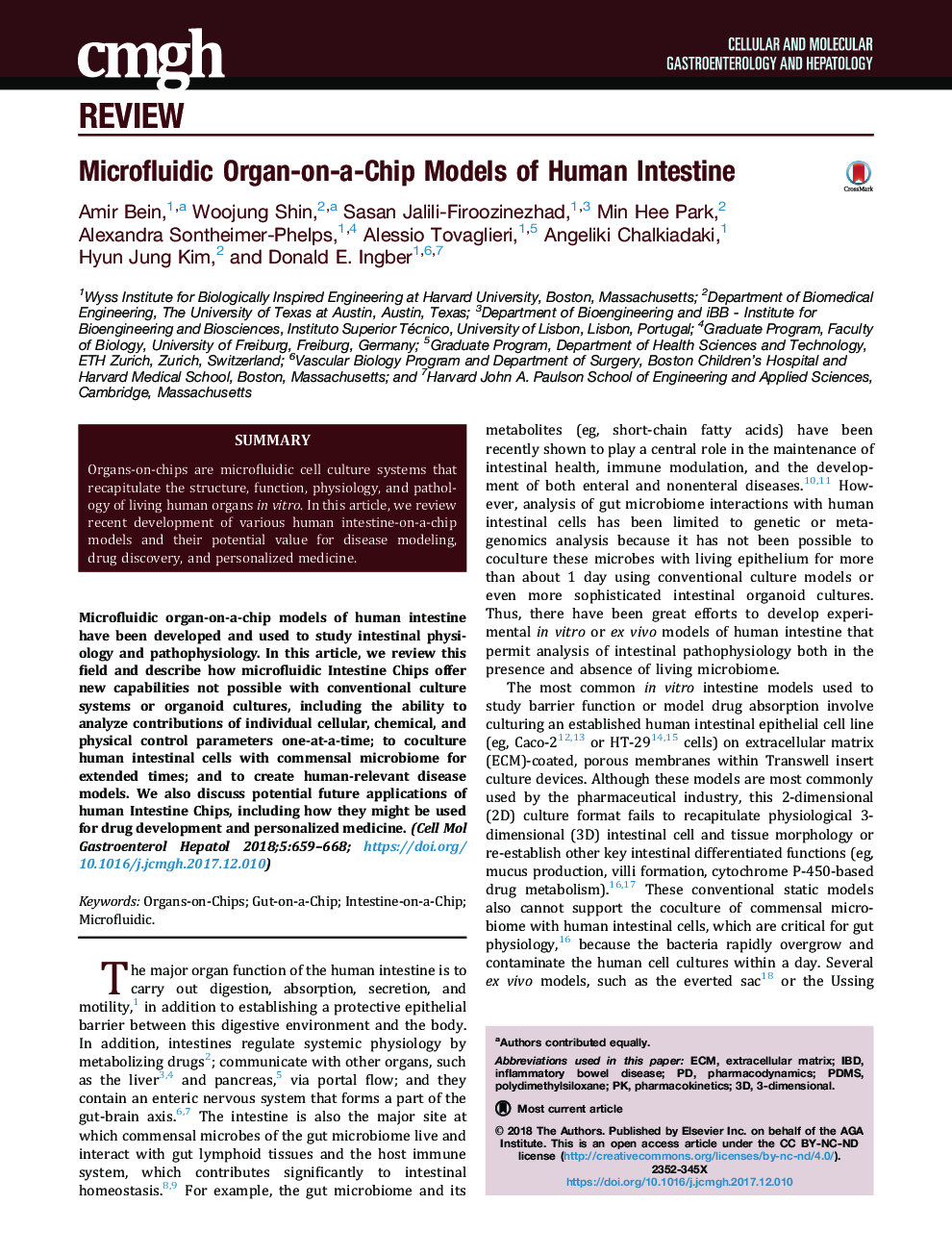| Article ID | Journal | Published Year | Pages | File Type |
|---|---|---|---|---|
| 8376349 | CMGH Cellular and Molecular Gastroenterology and Hepatology | 2018 | 10 Pages |
Abstract
Microfluidic organ-on-a-chip models of human intestine have been developed and used to study intestinal physiology and pathophysiology. In this article, we review this field and describe how microfluidic Intestine Chips offer new capabilities not possible with conventional culture systems or organoid cultures, including the ability to analyze contributions of individual cellular, chemical, and physical control parameters one-at-a-time; to coculture human intestinal cells with commensal microbiome for extended times; and to create human-relevant disease models. We also discuss potential future applications of human Intestine Chips, including how they might be used for drug development and personalized medicine.
Keywords
Related Topics
Life Sciences
Biochemistry, Genetics and Molecular Biology
Biochemistry, Genetics and Molecular Biology (General)
Authors
Amir Bein, Woojung Shin, Sasan Jalili-Firoozinezhad, Min Hee Park, Alexandra Sontheimer-Phelps, Alessio Tovaglieri, Angeliki Chalkiadaki, Hyun Jung Kim, Donald E. Ingber,
